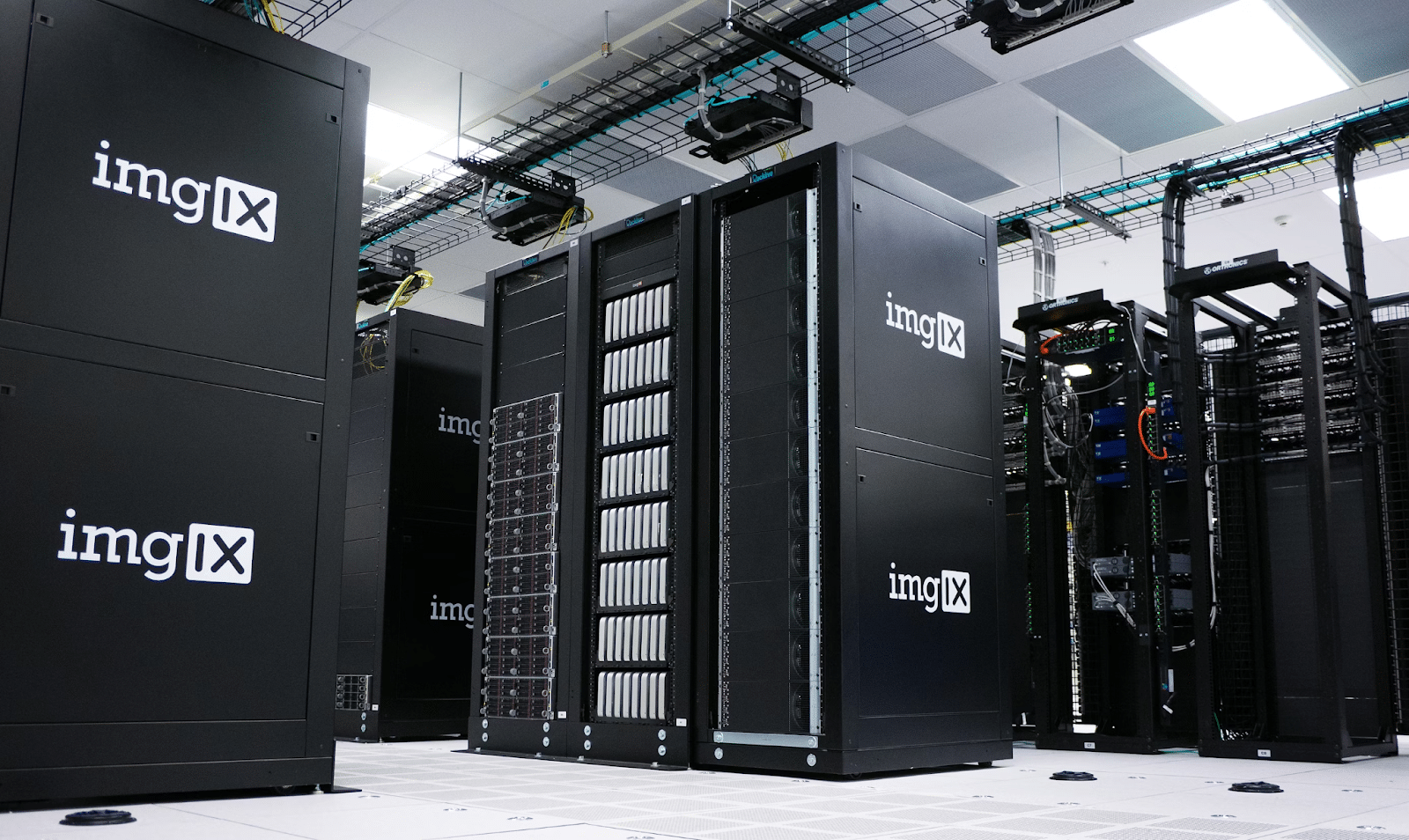
Image source: https://unsplash.com/photos/img-ix-mining-rig-inside-white-and-gray-room-klWUhr-wPJ8
In the rapidly evolving world of technology, the environmental footprint of this sector has become impossible to ignore. From the mountains of electronic waste generated each year to the energy-hungry data centres powering our digital lives, the tech industry’s impact on the planet is profound. Yet, as consumers grow more environmentally conscious, their demand for green products is reshaping the market, compelling companies to rethink their operations and product designs. This shift is not merely a response to consumer demand but a strategic move in an increasingly eco-conscious market.
The tech industry, known for its capacity for rapid innovation and growth, now faces the challenge of integrating sustainability into its core operations. This transition requires a significant shift in mindset and operations, a challenge that many in the sector are still grappling with. Nick Voulvoulis, a professor of Environmental Technology at Imperial College London, captures this sentiment perfectly, stating, “While tech innovation has been happening at an unprecedented rate and scale, creating products that are novel, profitable and may be useful to some extent, it has historically been driven by commercial objectives, without really targeting the broader sustainability challenges we face, and in some cases even adding to the burden of these challenges.” This quote underscores the critical need for the tech industry to pivot towards sustainability, not just for the planet’s sake but as a strategic business move.
Pioneering Energy Efficiency in Data Centres
Data centres, the backbone of the digital world, are notorious for their high-energy consumption. However, innovations in design and technology are paving the way for more energy-efficient facilities. Google’s Hamina data centre in Finland, for example, uses seawater for cooling, drastically reducing its energy use. Such pioneering approaches demonstrate the potential for significant environmental impact reduction through smart design and technology.
The quest for energy efficiency in data centres is driven by more than just a desire to reduce carbon footprints; it’s also about operational efficiency and cost savings. Advanced cooling techniques, renewable energy sources, and AI-driven energy management systems are transforming how data centres operate. These technologies not only minimise environmental impact but also improve the bottom line, making sustainability a compelling business case.
Redefining Product Design for a Greener Future
The design phase is crucial in determining a product’s environmental impact. By adopting sustainable design philosophies, such as cradle-to-cradle, companies can significantly reduce their ecological footprint. These designs focus on creating products that can be fully recycled or biodegraded, ensuring that nothing ends up as waste. Similarly, adhering to Energy Star certifications helps companies design products that are energy-efficient, reducing greenhouse gas emissions and saving consumers money on electricity bills.
Consumer demand is a powerful driver of change in the tech industry. As awareness of environmental issues grows, so does the demand for sustainable products. This shift in consumer preferences is pushing companies to rethink their product designs, incorporating eco-friendly materials and processes. The result is a new generation of products that are not only better for the planet but also offer improved performance and durability.
CSR Initiatives That Make a Difference
Corporate Social Responsibility (CSR) initiatives in the tech industry are evolving beyond mere philanthropy to become integral components of companies’ business strategies. Investing in green technologies and sustainable practices is not just about doing good; it’s about ensuring long-term business viability. Companies are realising that their environmental impact can affect their brand reputation, customer loyalty, and even their bottom line. As a result, impactful CSR initiatives are becoming a competitive advantage in the tech industry.
Measuring the impact of CSR initiatives is crucial for understanding their effectiveness and guiding future actions. Companies are employing various methods, from carbon footprint analysis to sustainability reporting, to assess the environmental benefits of their initiatives. This data-driven approach allows companies to refine their strategies, maximise their impact, and communicate their achievements to stakeholders. It also helps in identifying areas where further improvements can be made, driving continuous progress towards sustainability.

Image source: https://pixabay.com/photos/cup-of-coffee-laptop-office-macbook-1280537/
From Startups to Giants: Stories in Sustainability
The tech industry’s landscape is dotted with success stories of companies, both startups and giants, that have embraced sustainability. These stories showcase the diverse approaches to sustainability, from innovative product designs to green manufacturing processes and beyond. Startups, with their agility and innovative spirit, are often at the forefront of sustainable practices, developing new technologies and business models that challenge the status quo. Meanwhile, established tech giants leverage their resources and reach to implement large-scale sustainability initiatives, setting industry standards and influencing supply chains.
One of the key factors behind these success stories is the recognition of sustainability as a driver of innovation and growth. Companies that integrate sustainability into their core business strategies often find new opportunities for efficiency, cost savings, and market differentiation. This proactive approach not only benefits the environment but also enhances the company’s competitiveness and resilience in a rapidly changing world.
Cultivating a Culture of Sustainability Through Leadership
Leadership plays a crucial role in cultivating a culture of sustainability within organisations. Lucas Joppa, as Microsoft’s Chief Environmental Officer, exemplifies how visionary leadership can drive a company’s sustainability agenda. By setting ambitious goals and integrating sustainability into every aspect of the business, leaders can inspire employees, stakeholders, and the industry at large to prioritise environmental responsibility. This top-down approach ensures that sustainability becomes a core value, influencing decision-making at all levels.
Fostering a culture of sustainability requires more than just setting goals; it involves engaging employees, providing education and resources, and encouraging innovation. Companies that succeed in creating a sustainability-focused culture often see increased employee motivation and loyalty, as staff feel they are contributing to a meaningful cause. This positive workplace environment can lead to greater creativity and innovation, further advancing the company’s sustainability efforts.
Tech’s Role in Revolutionising Sustainable Food Production
The intersection of technology and sustainable agriculture is opening up new frontiers in food production. Entrepreneurs like Kimbal Musk are leading the charge, leveraging tech innovations to create more sustainable and efficient farming practices. From vertical farming, which uses less land and water, to precision agriculture, which optimises resource use and increases crop yields, technology is playing a pivotal role in addressing food sustainability challenges.
These technological advancements are not just about producing more food; they’re about producing food in a way that is better for the planet. By reducing the need for chemical fertilisers and pesticides, minimising water usage, and cutting down on transportation emissions, tech-driven farming practices can significantly lower the environmental impact of food production. This shift towards more sustainable methods is crucial in a world facing increasing food demand and environmental pressures.
Learning from Global Sustainability Practices in Tech
The tech industry’s approach to sustainability varies widely across the globe, influenced by cultural, regulatory, and market factors. Conrad Clarkson, with his extensive experience in diverse professional environments across Australia, the UK, Singapore, and South Korea, offers a unique perspective on how different cultural and regulatory environments shape sustainability strategies in the tech industry. His insights highlight the importance of understanding local contexts and leveraging global best practices to drive sustainability efforts.
One of the key lessons from global sustainability practices is the value of regulatory support. In regions where governments prioritise environmental issues, tech companies often find it easier to implement sustainable practices, thanks to incentives and clear guidelines. Conversely, in areas with less regulatory emphasis on sustainability, companies may need to take the initiative, setting their own standards and working to shift public and governmental attitudes.
The diversity of approaches to sustainability in the tech industry underscores the importance of sharing knowledge and experiences across borders. By learning from each other, companies can adopt best practices, avoid common pitfalls, and accelerate their progress towards sustainability. This global exchange of ideas and strategies not only benefits individual companies but also contributes to the broader goal of creating a more sustainable tech industry worldwide.
Navigating the Challenges and Seizing Opportunities in Sustainability
The journey towards sustainability in the tech industry is fraught with challenges, but it also presents significant opportunities. Balancing environmental goals with business objectives, navigating regulatory landscapes, and driving technological innovation are just a few of the hurdles companies face. However, those that successfully navigate these challenges can turn them into competitive advantages, differentiating themselves in the market and attracting eco-conscious consumers.
Innovation plays a crucial role in overcoming sustainability challenges. By developing new technologies and business models, companies can address environmental issues in ways that also drive growth and profitability. This requires a willingness to experiment, take risks, and think outside the box. The tech industry, with its inherent focus on innovation, is well-positioned to lead the way in finding creative solutions to sustainability challenges.
The opportunities for the tech industry in sustainability are vast. From developing green technologies to transforming business practices, the sector has the potential to make a significant impact on the planet. By seizing these opportunities, companies can not only reduce their environmental footprint but also build a more resilient and sustainable business model. In doing so, they contribute to a future where technology and sustainability go hand in hand, benefiting both the planet and the bottom line.
Looking Ahead The Future of Sustainability in Tech
As we look to the future, the role of the tech industry in promoting sustainability is set to grow. With increasing environmental challenges and consumer demand for green products, companies across the sector will need to intensify their efforts. This will involve not only adopting sustainable practices but also driving innovation in green technologies. The future of sustainability in tech is likely to see a greater emphasis on circular economy principles, renewable energy, and sustainable materials, setting new standards for the industry.
Collaboration will be key to achieving these goals. By working together, tech companies, governments, NGOs, and consumers can create a more sustainable future. This collaborative approach can accelerate the adoption of green technologies, influence policy, and shift consumer behaviours. As the tech industry continues to evolve, its ability to foster partnerships and drive collective action will be crucial in addressing global environmental challenges.
The call to action is clear: companies, policymakers, and individuals must all play their part in promoting sustainability in the tech industry. By taking concrete steps towards greener practices and technologies, we can ensure that the tech sector not only thrives but also contributes to a healthier planet. The journey towards sustainability is a challenging one, but with innovation, collaboration, and leadership, the tech industry can lead the way in creating a more sustainable future for all.





